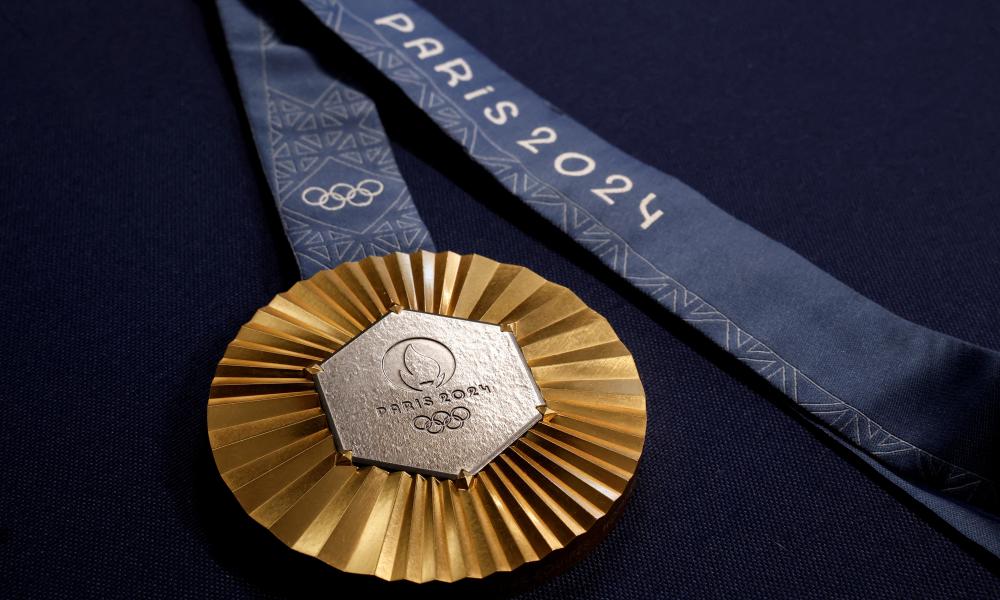
WORLD ATHLETICS’ CASH FOR PARIS OLYMPICS MEDALS CREATES PROBLEM, SAYS BOA CHIEF
World Athletics has created a problem by announcing that gold medallists at the Paris Olympics will receive cash prizes, according to the head of the British Olympic Association.
Criticism has followed World Athletics president Sebastian Coe’s pledge to pay gold medal winners in Paris $50,000 (£40,119) with the BOA’s chief executive, Andy Anson, the latest to question the end of a 128-year tradition.
“I think what wasn’t great about the announcement last week is when one sport goes off and does something on their own, doesn’t include the other sports, the IOC or the national Olympic committees,” Anson told Sky Sports on Wednesday.
Related: Dina Asher-Smith: ‘For the first time in 10 years, I can just kind of be’
“They create a problem because now other sports are clearly going to get some scrutiny or even pressure from athletes saying: ‘Well what about our sport, how can this sport do it and not us?’ It’s a debate we can have but we need to have it at the right time, and the right place, and together.”
Other sports federations appear to have been taken by surprise by the World Athletics move – a $2.4million prize pot to be split among the 48 gold medallists in Paris – which will also see Olympics silver and bronze medallists receive prize money from the 2028 Los Angeles Games.
David Lappartient, president of cycling governing body (UCI) said World Athletics had not discussed it with other federations and that it went against the Olympic spirit. “The Olympic spirit is to share revenues and have more athletes compete worldwide,” he said. “Not only put all the money on the top athletes but spread the money.”
Anson said the strength of the Olympic family was that all sports worked together. “That’s how you need to navigate these issues and I don’t think it’s particularly appropriate or helpful for one sport to announce that,” he said.
Anson also added it created a danger of a two-tier Olympics. “It’s such a small number and it’s only gold medals so I don’t think it does that yet,” he said. “But there is clearly a risk of that and we don’t want that to happen.”
Meanwhile, France would only move the opening ceremony of the Paris Olympic Games to the Stade de France if there was “an absolute disaster” as this would mean scrapping the parade on the River Seine and restricting the ceremony to speeches, the country’s sports minister has said.
Amelie Oudea-Castera told Franceinfo radio on Wednesday that there was “no specific terror threat” to the 26 July ceremony and that holding the event on the Seine remained “the central scenario”, but France had prepared alternative plans in the event of a major security incident.
Related: Gold medal for politics: why Olympic prize money is a smart move by Seb Coe | Sean Ingle
Conflict in the Middle East and Ukraine as well as a threat of terrorist attacks have led the French government to raise its security alert to its highest level. “If there was [the likelihood] of an absolute disaster, one can imagine a ceremony strictly limited to protocol,” Oudea-Castera said, restricting it to official speeches in the Stade de France.
The French president, Emmanuel Macron, said on Monday he was confident the planned Games ceremony with big crowds around the Seine, where some 160 boats would set off for a 6km journey, would be a huge success. But, he cautioned, plan B would be would be to restrict the ceremony to the Trocadero square facing the Eiffel Tower in central Paris - which Oudea-Castera said would preserve its “artistic dimension”. Plan C would be to move the event to the Stade de France.
Elsewhere, Japanese Olympians in Paris will display the carbon footprint of their eco-friendly team kits. Team Japan’s jackets, trousers and other items athletes will wear on the podium and at press conferences will have the amount of carbon dioxide emitted during production stamped on them, in a nod to the host city’s green goals.
The team’s warm-up suit jacket shows 8.8 kg of carbon dioxide equivalents (CO2e) were emitted in its production while bottoms show 5.5 kg of CO2e. “The Paris Games are billed as the most sustainability-focused event in Olympic history, so we adhered to that concept,” said kit-makers Asics’ Makoto Ohori.
2024-04-17T11:03:01Z dg43tfdfdgfd